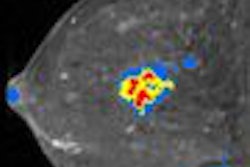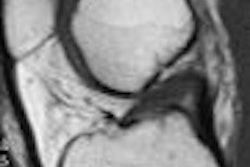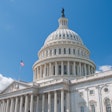When the U.S. Department of Justice announced on April 14 that it had reached a $7 million settlement with a Florida radiologist to resolve allegations of healthcare fraud, radiologists across the country took notice. The buzz in the Boca Raton, FL, case has centered on the question of whether it was a one-shot deal -- or whether it represents a trend toward increased federal enforcement of laws prohibiting fraud and kickbacks.
The settlement marks the end of a suit originally filed against Dr. Fred Steinberg's University MRI company in 2002 by a radiologist who had worked for him, Dr. David Clayman. The U.S. government joined the suit under the terms of the U.S. False Claims Act, in which private individuals can bring whistleblower actions for fraud on behalf of the U.S., and collect a share of any proceeds recovered by the suits.
The suit charged that University MRI owned and operated imaging facilities that violated a number of Medicare laws prohibiting kickbacks to referring physicians, and also billed for imaging exams that weren't performed and were medically unnecessary. In a statement discussing the settlement, University MRI stated that the company was never charged with a crime and did not intentionally violate any federal laws or regulations.
In the case, government prosecutors investigated multiple billings over a long period of time, interviewed the doctors who had received the kickbacks, and analyzed claim after claim to make the case.
That perseverance shows a serious attitude toward fraud, according to Dr. Richard Duszak, an interventional radiologist with Mid-South Imaging and Therapeutics, a private practice in Memphis, TN. Duszak also serves as CPT Advisor and chair of the Committee on Coding and Nomenclature with the American College of Radiology (ACR) of Reston, VA.
"The real implication of this case is that it raises the government's interest in investigating practices," Duszak said. "When you have a high-dollar settlement like this one, it exponentially raises the awareness of fraud."
Not a one-shot deal
As federal concerns about overutilization in medical imaging increase, fraud and abuse in the Medicare program is under particular scrutiny, according to Janet Goldstein of Vogel, Slade & Goldstein, a Washington, DC, law firm that represented the plaintiff in the University MRI case. Medicare's spending on medical imaging has more than doubled in the last five years, from $6.6 billion in 2000 to $13.7 billion in 2005, an average annual growth rate of 15.7%, according to the Centers for Medicare and Medicaid Services.
The government is putting more and more of its resources into pursuing healthcare cases, both on the fraud side and the antikickback side, Goldstein said. That's evident from a laundry list of cases publicized by the Department of Justice in just the last month alone against healthcare providers across multiple medical specialties:
On April 24, the parent company of Memorial Health University Medical Center in Savannah, GA, agreed to pay the Department of Justice $5.1 million to settle allegations that it defrauded Medicare by compensating ophthalmologists at levels that were not commercially reasonable. This suit was also originated by a private-party whistleblower, with the U.S. government joining under the False Claims Act.
On April 17, Touro Infirmary of New Orleans agreed to pay $1.75 million for making unlawful payments for referrals to a psychiatrist in another False Claims Act case.
On April 9, Medicaid Dental Center in North Carolina agreed to pay $10 million to resolve False Claim Act allegations that it billed Medicare for what the government called "medically unnecessary dental services performed on indigent children."
On April 2, Miami resident Rita Campos Ramirez was sentenced to 10 years in prison for her role in what the government called the largest Medicare fraud in history -- submitting $170 million in fraudulent Medicare bills on behalf of HIV infusion clinics.
On April 1, the Department of Justice said it intervened in a whistleblower suit against a group of heart testing facilities in Ohio, charging them with providing kickbacks to cardiologists in exchange for patient referrals. The lawsuit alleges that the facilities allocated time to cardiologists based on the number of referrals they generated, and that other cardiologists were locked out.
If it's true that the government is renewing its focus on stopping Medicare fraud, radiologists would do well to beware, according to Dr. Leonard Berlin, chair of radiology at Rush North Shore Medical Center in Skokie, IL.
"The lesson here is that radiologists have to be alert and aware of these laws," Berlin said. "Kickbacks take many different forms far beyond just handing some cash to someone. Sure, maybe some people are getting away with things, but when U.S. attorneys start looking around, they really start looking around."
By Kate Madden Yee
AuntMinnie.com staff writer
April 30, 2008
Related Reading
Radiologist pays $7 million to settle federal fraud claims, April 14, 2008
U.S. DOJ joins 'kickback' case against Ohio heart centers, April 2, 2008
Whistleblower accuses radiologist of referral, lease kickbacks, July 19, 2005
Copyright © 2008 AuntMinnie.com




















